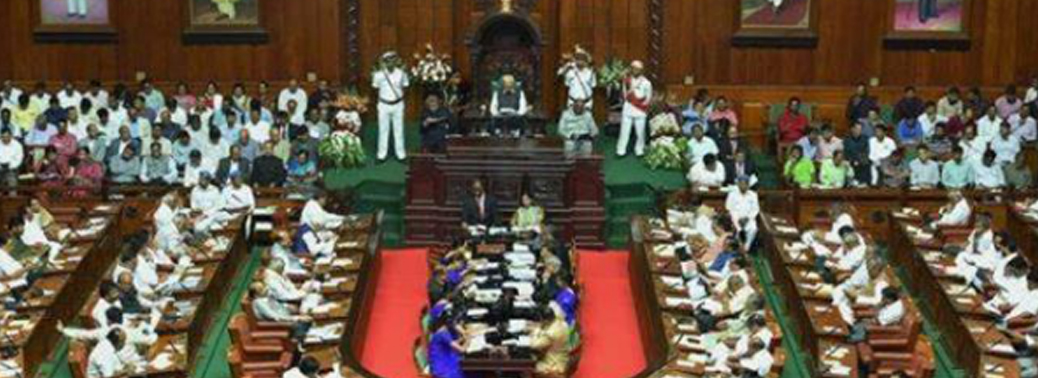SUPREME COURT QUESTIONS THE POWER OF DISQUALIFICATION HELD BY SPEAKER
23, Jan 2020

Prelims level : Polity and Governance- Judiciary.
Mains level : GS-II Structure, organization and functioning of the Executive and the Judiciary.
Why in News?
- The Supreme Court has recently held that disqualification petitions under the tenth schedule should be adjudicated by a body/mechanism outside the Parliament or Legislative Assemblies.
Proposal of the Supreme Court:
- The Court has suggested for setting up a permanent tribunal headed by a retired Supreme Court judge or a former High Court Chief Justice as a new mechanism to adjudicate cases under tenth schedule. (This would require an amendment to the Constitution).
- The court has also observed that since the speaker is itself a part of the parliament, he cannot be completely shielded from the political pressures. Currently, disqualification of members of a House/Assembly is referred to the Speaker of the House/Assembly.
- However, for the present, the court said the Speakers should decide Tenth Schedule disqualifications within a “reasonable period”. What is ‘reasonable’ would depend on the facts of each case.
- The Court held that unless there are “exceptional circumstances”, disqualification petitions under the Tenth Schedule should be decided by Speakers within three months.
Rationale behind the Supreme Court’s Proposal:
- The Supreme Court questioned why a Speaker, who is a member of a particular political party and an insider in the House, should be the “sole and final arbiter” in the disqualification of a political defector.
- For that matter, it asked why disqualification proceedings under the Tenth Schedule should be kept in-house and not be given to an “outside” authority. It reasoned that even the final authority for removal of a judge is outside the judiciary and in Parliament.
- The Court held that only swift and impartial disqualification of defectors would give “real teeth” to the Tenth Schedule.
Powers held by Speaker with regard to Anti-Defection Law:
- Any question regarding disqualification arising out of defection is to be decided by the presiding officer of the House.
- After Kihoto Hollohan case (1993), the Supreme Court declared that the decision of the presiding officer is not final and can be questioned in any court. It is subject to judicial review on the grounds of malafide, perversity, etc.
Other Info:
- This is the second time in recent months the court has highlighted the issue of taking away the disqualification power under the Tenth Schedule from Speakers.
- In the Karnataka MLAs’ disqualification case, the court had held that a Speaker who cannot stay away from the pressures and wishes of his political party does not deserve to occupy his chair.






